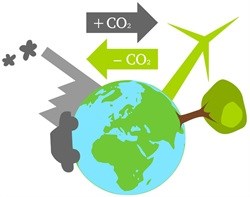
Top stories





Energy & MiningGlencore's Astron Energy gears up with new tanker amidst Sars dispute
Wendell Roelf 8 hours

More news


















Logistics & Transport
Uganda plans new rail link to Tanzania for mineral export boost










Promethium Carbon is currently in discussions with companies interested in buying the carbon credits and have clean development mechanism projects with issued credits to sell. "We will facilitate the trade on the JSE through the proposed carbon offset system," said Promethium Carbon director and carbon advisor, Harmke Immink. The aim is to show how businesses can use relief measures from South Africa's future carbon tax.
In addition, the company will investigate current trading contracts, buyer-and-seller contracts and their applications in the carbon offset programme, as well as the roles that institutions such as the South African Revenue Service and the JSE will play in the programme.
The pilot trade forms part of the second phase of the carbon offset programme funded by the British High Commission and follows a report, conducted by Promethium Carbon, focusing on the potential structuring of a carbon offset trading programme for South Africa. The report concluded that the country has the necessary infrastructure for a carbon offset programme.
Promethium Carbon's study found that there was sufficient potential volume to meet the demand generated by the proposed carbon tax, at a marginal cost of R120/t of carbon dioxide (CO2). "Although the carbon tax has been postponed to 2016, Promethium Carbon wants to ensure there is a credible system in place to justify the carbon offset programme's use to industry," Immink said.
She said that Promethium would be able to have the system in place within six months, once government has finalised the regulations pertaining to the carbon offset initiative. This will provide a clear regulatory signal as to when the carbon tax will start.
While Promethium Carbon has received positive local and international feedback on the proposed programme, Immink said the offsets will open doors for companies to invest in low-cost renewable options. The combination of tax and trade will enable companies to take interim steps in offsetting their carbon tax while conducting feasibility studies for large-scale switching to greener technologies.
Immink said that while South Africa has the principal platform and infrastructure systems to establish the carbon offset programme, there will be enough mitigation volumes of CO2 tonnages for carbon emissions reduction and, if 'ideally implemented', the carbon offsets would drive about 10% of South Africa's current pledge of a 34% reduction in carbon emissions by 2020.
"As most of South Africa's CO2 emissions, which currently comprise an inventory of about 500 million tons, are associated with energy such as electricity and the use of liquid fuels for the national grid, any method to lighten the strain on the grid will assist the country in achieving a lower carbon footprint."
Immink noted that although National Treasury published the first draft of the Carbon Offset Paper in April, describing the ways in which companies could use carbon credits to lower their tax obligations, several energy efficiency projects, renewable projects and in-house carbon emissions reduction projects are currently excluded from the list.
Examples include energy efficiency projects such as compressed air and underground ventilation fan optimisation, implemented by a mining company on their own operations. "Promethium Carbon believes the excluded projects are actually the 'least cost' projects and we are promoting their inclusion," Immink said, noting that companies should not be forced to only buy carbon credits from the more expensive carbon emissions projects.
"If these 'least cost' projects are excluded, it decreases the carbon emissions offset pool. Carbon offset trading will only succeed if there are enough carbon credits available for supply and demand," she stressed, noting that if about 80% of the carbon credit supply is excluded, thereby reducing the market, there would be no justification for a carbon offset programme.
"These projects could contribute significantly and we hope to have them included, as they provide a sizable market, of about 15 million to 20 million tons of carbon credits, which is sufficient for the carbon offset programme," Immink said.